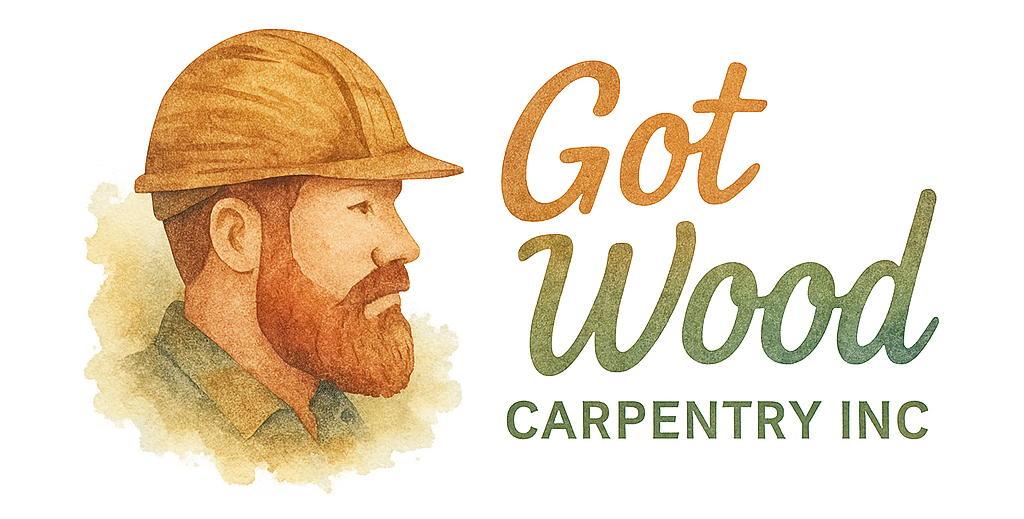Introduction
When you’re planning a commercial construction or renovation project, hiring the right carpenter is essential. The quality of the craftsmanship can influence your business’s functionality, aesthetic appeal, and long-term value. Whether you’re renovating an office, building a retail store, or designing a restaurant, it’s crucial to work with a carpenter who understands the specific demands of commercial spaces.
In this article, we’ll cover six critical questions to ask before hiring a commercial carpenter. By the end, you’ll have the knowledge to select a reliable, skilled professional who will meet your business’s needs. Plus, we’ll guide you toward high-quality resources like Got Wood Carpentry’s Commercial Carpentry for further inspiration.
Why Hiring the Right Commercial Carpenter Matters
The Impact of Quality Workmanship on Your Business
Choosing the right carpenter ensures your commercial space meets the highest standards of craftsmanship, functionality, and design. A well-executed project can improve workflow, boost customer satisfaction, and enhance your brand image. Conversely, poor workmanship can lead to costly repairs and disrupt business operations.
Choosing a Carpenter Who Understands Commercial Needs
Commercial carpentry involves unique challenges such as larger scales, heavier use, and compliance with building codes. It’s essential to work with a carpenter who has experience with commercial properties to ensure the project runs smoothly and meets all requirements. Learn more about commercial carpentry by visiting Got Wood Carpentry’s Residential Carpentry.
1. What is Your Experience in Commercial Carpentry?
Importance of Specialized Commercial Experience
Commercial projects require a higher level of expertise than residential carpentry. A seasoned carpenter who specializes in commercial work understands the unique complexities involved—such as handling large-scale designs and ensuring structural integrity. They’ll be familiar with commercial building codes and can provide solutions to complex challenges.
Examples of Commercial Carpentry Projects
Ask the carpenter to provide examples of their previous commercial projects. For instance, have they worked on retail spaces, offices, or public buildings? Reviewing their portfolio will give you insight into their skill set and ability to handle your specific needs. For more information on custom work, take a look at Got Wood Carpentry’s Custom Furniture.
2. Are You Licensed and Insured?
The Need for Proper Licensing
A licensed commercial carpenter has met the necessary qualifications to operate legally within your area. This ensures that they are knowledgeable about building codes, safety regulations, and construction practices. Without proper licensing, you could be exposed to legal risks and costly mistakes down the line.
Why Insurance is a Must for Commercial Carpentry
Insurance is essential for any commercial carpenter, as it protects you from liability in case of accidents or property damage during the project. A reliable carpenter will carry both general liability insurance and workers’ compensation insurance. Ensure you ask for proof of insurance before hiring.
Check out Got Wood Carpentry’s Decking & Outdoor Structures for examples of projects that are fully insured and executed with high safety standards.
3. Can You Provide References or a Portfolio of Previous Work?
Verifying Credibility Through References
One of the best ways to assess a carpenter’s skill and reliability is through references from previous clients. Ask for at least three references from past commercial projects, and follow up with them to ask about their experience. Were they satisfied with the quality of work? Was the project completed on time? Were there any issues?
Why a Portfolio is Essential
In addition to references, a portfolio showcasing their past work is crucial. A good carpenter will have a variety of completed commercial projects that demonstrate their expertise. Make sure the portfolio includes projects similar to yours, whether it’s a commercial office, restaurant, or retail store.
For more examples of high-quality carpentry, explore Got Wood Carpentry’s Custom Work.

4. What is Your Project Timeline?
The Importance of a Clear Schedule
Before agreeing to a project, it’s crucial to establish a timeline. A commercial carpentry project often involves coordination with other contractors and various phases, such as framing, finishing, and inspections. A clear schedule ensures that the project progresses smoothly and minimizes downtime for your business.
How to Deal with Potential Delays
Although delays can happen in construction, it’s essential that your carpenter is transparent about potential setbacks and has a plan for addressing them. Discuss milestones, expected completion dates, and how they plan to manage delays caused by weather, material shortages, or other unforeseen issues. For ideas on keeping your project on track, refer to Got Wood Carpentry’s Office Design.
5. What Materials Do You Recommend and Use?
Selecting High-Quality Materials for Commercial Projects
The materials used in commercial carpentry projects must be durable, functional, and cost-effective. Ask your carpenter to recommend materials based on your project’s needs. For example, high-traffic areas may require tougher materials, while eco-conscious businesses may want to use sustainable options.
Sustainability and Durability Considerations
Durability and sustainability should be a top priority when selecting materials for your commercial space. Whether it’s wood, metal, or composite materials, they should stand the test of time and be able to handle the demands of a busy commercial environment. Check out Got Wood Carpentry’s Woodworking Tips & Education for helpful advice on choosing materials for your project.
6. What Will the Total Project Cost Be?
Understanding Estimates and Pricing Structures
Before starting the project, ensure that you have a detailed estimate of the total cost. This should include a breakdown of labor, materials, permits, and any additional fees that may arise. Having a clear financial plan will help avoid misunderstandings and ensure that the project stays within budget.
Hidden Costs to Watch Out For
Some carpenters may give you an initial low estimate, but it’s important to discuss any potential hidden costs. These could include extra work that may arise during the project or price increases for materials. Make sure your carpenter is transparent about the total cost and provides a contract that clearly outlines all expenses.
For more information on budget management for your project, visit Got Wood Carpentry’s Commercial Carpentry.
Conclusion
Choosing the right commercial carpenter is one of the most important steps in ensuring the success of your project. By asking the right questions and reviewing their experience, insurance, references, and cost estimates, you can confidently select a professional who will deliver the quality work your business deserves. Remember, a reliable carpenter will not only meet your expectations but will also bring their expertise to the table to make your vision come to life.
For more guidance on residential or commercial carpentry projects, explore the wide range of resources at Got Wood Carpentry’s Residential Carpentry.
FAQs
- How can I determine if a carpenter has the right experience for my commercial project?
- Ask for examples of similar projects they’ve worked on and check their portfolio and references.
- What should be included in a carpenter’s cost estimate?
- The estimate should include labor costs, material costs, permits, and any additional fees or potential price increases.
- Why is it important to hire an insured carpenter for commercial projects?
- Insurance protects you from potential liability in case of accidents, damages, or injuries during the project.
- What types of materials should I use for high-traffic areas in commercial spaces?
- Durable materials like hardwood, metal, or composite materials are ideal for areas that experience heavy use.
- What happens if my project is delayed?
- A good carpenter should provide an updated timeline and outline solutions for potential delays due to weather, material shortages, or unforeseen issues.
- Can I request eco-friendly materials for my commercial project?
- Yes, many carpenters offer sustainable options that are both functional and environmentally friendly.
- How do I ensure my carpenter meets deadlines?
- Discuss a clear project timeline, including milestones, and maintain open communication throughout the process.


